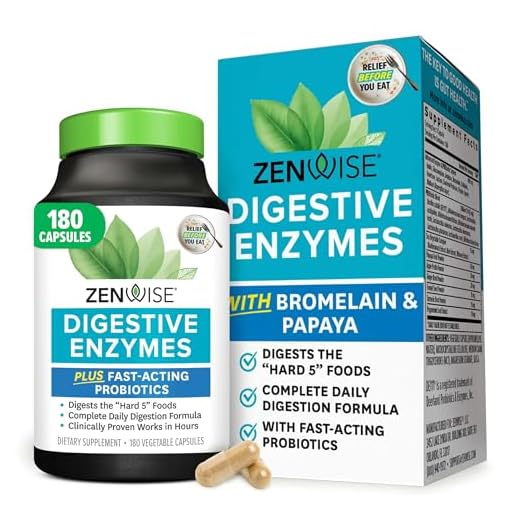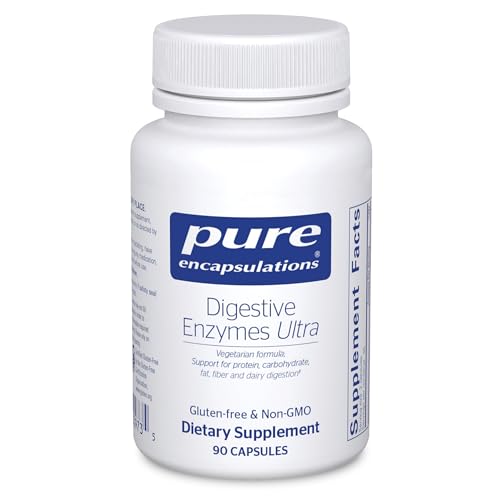



Within the intricate realm of the human body, there exists an intricate process that fuels our ability to extract vital nutrients from the foods we consume. This bewildering process, shrouded in a tapestry of enzymes and chemical reactions, enables us to break down protein into its constituent components. By peering into the labyrinthine pathways of protein digestion, we can gain insight into the crucial mechanisms that sustain our bodily functions.
An Orchestra of Enzymatic Players:
Imagine a bustling symphony hall, filled with a myriad of performers, each contributing their unique melodies to create harmonious music. Similarly, protein digestion requires a carefully choreographed ensemble of enzymes, operating in perfect synchronization. Leading this symphonic ensemble is pepsin, a key player secreted by the stomach glands. Known as a protease, pepsin’s main task is to cleave proteins into smaller polypeptides, paving the way for further breakdown.
The Dance of Digestion:
Once the partially digested proteins journey from the stomach into the small intestine, another grand performance begins. Enter the pancreatic enzymes: trypsin, chymotrypsin, and elastase. These enzymatic dancers skillfully disassemble the polypeptides further, methodically cutting them into even smaller fragments. The final act falls upon the villi of the small intestine, which absorb the resulting amino acids – the building blocks of life – and transport them to where they are needed most.
The Role of Stomach Acid in Protein Digestion
In the intricate process of breaking down protein, various components come into play. One crucial player is stomach acid, which holds significant responsibilities in facilitating the digestion of proteins. Stomach acid, also known as gastric acid, assumes a vital role in the journey of proteins through the digestive system.
- Protein Denaturation: Stomach acid first acts to denature proteins, altering their structure and enabling enzymatic digestion. This process prepares the proteins for further breakdown.
- Pepsin Activation: Stomach acid activates the enzyme pepsin, which is responsible for breaking down proteins into smaller peptides. Pepsinogen, an inactive form of pepsin, is secreted by cells in the stomach lining and requires an acidic environment to transform into its active state.
- Optimum pH: Stomach acid creates an acidic environment, with a pH ranging from 1.5 to 3.5, which is optimal for the action of pepsin. The low pH aids in the efficient enzymatic digestion of proteins, ensuring proper breakdown.
- Pathogen Protection: Besides protein digestion, stomach acid also serves as a defense mechanism against harmful pathogens. Its acidic nature helps to neutralize ingested bacteria, viruses, and other potentially harmful microorganisms, reducing the risk of infections.
- Absorption Facilitation: By breaking down proteins into smaller peptides and amino acids, stomach acid contributes to the efficient absorption of these nutrients in the small intestine.
In conclusion, stomach acid plays a pivotal role in protein digestion by denaturing proteins, activating the enzyme pepsin, enabling optimal pH conditions, offering protection against pathogens, and aiding in nutrient absorption. Understanding the importance of stomach acid in this complex process highlights the intricate workings of our digestive system.
The Enzymes Involved in Protein Breakdown
Protein breakdown in the human body relies on the interactions and activities of various enzymes. These specialized proteins play a crucial role in the breakdown process by catalyzing specific reactions and facilitating the digestion of ingested proteins.
One key enzyme involved in protein breakdown is protease. Proteases, also referred to as peptidases, are responsible for breaking down proteins into smaller peptides and ultimately into amino acids. These enzymes recognize specific peptide bonds within the protein structure and cleave them, resulting in protein fragmentation. Different proteases have varying substrate specificities, allowing for the breakdown of a wide range of protein types.
Another important enzyme in protein digestion is pepsin. Pepsin is a protease that is primarily active in the acidic environment of the stomach. It is secreted as an inactive precursor known as pepsinogen and activated by the low pH in the stomach. Pepsin specifically cleaves proteins at specific sites, generating smaller peptides that can be further digested.
Apart from proteases, enzymes called peptidases are also involved in protein breakdown. Peptidases function in the small intestine and are responsible for further breaking down peptides into individual amino acids. These enzymes play a crucial role in the final step of protein digestion, as amino acids are the end products that can be absorbed by the body.
In summary, the digestion of proteins involves a complex interplay of enzymes, including proteases, pepsin, and peptidases. These enzymes work together to break down proteins into smaller peptides and ultimately into amino acids, which can be utilized by the body for various metabolic processes.
The Process of Protein Denaturation
Understanding the transformation that proteins undergo during digestion is crucial in comprehending the journey from ingestion to assimilation. One significant process that occurs is protein denaturation, which alters the structure and properties of proteins, paving the way for further breakdown and absorption.
The Nature of Protein Denaturation
Protein denaturation refers to the alteration of a protein’s secondary, tertiary, or quaternary structure, resulting in the loss of its original conformation. This transformation occurs in response to various factors, including heat, pH changes, mechanical stress, or the presence of certain chemicals. These external influences disrupt the weak interactions that stabilize a protein’s structure, leading to unfolding and exposing its internal components.
The Effects of Denaturation on Protein Digestion
The denaturation process plays a crucial role in protein digestion as it makes the protein more accessible to digestive enzymes. By unraveling the protein structure, denaturation exposes the peptide bonds, enabling enzymes to break them down into smaller peptides and eventually individual amino acids. These amino acids can then be absorbed by the body for various essential functions, such as building new proteins and providing energy.
| Factors causing denaturation | Effects on protein structure |
|---|---|
| Heat | Unfolds the protein and weakens bonds |
| pH changes | Alters the charges and disrupts bonds |
| Mechanical stress | Stretches and distorts the protein |
| Chemicals | Interacts with the protein, causing changes in structure |
Absorption of Protein in the Small Intestine
In the intricate process of nutrient breakdown within the human body, the small intestine plays a crucial role in the absorption of protein. As food travels through the digestive system, proteins are broken down into smaller molecules, known as amino acids, by enzymes such as proteases. Once these amino acids reach the small intestine, they undergo a complex process to ensure efficient absorption and utilization by the body.
Role of Villi in Protein Absorption
The lining of the small intestine is lined with small, finger-like projections called villi, which greatly increase the absorptive surface area. Each villus is covered in tiny microvilli, further enhancing the surface area available for absorption. Within these villi and microvilli, specialized cells called enterocytes are responsible for actively transporting amino acids into the bloodstream.
These enterocytes contain specific membrane proteins, such as amino acid transporters, that facilitate the transport of amino acids from the intestinal lumen into the enterocytes. This active transport mechanism ensures that amino acids are efficiently absorbed and not lost during digestion.
The Role of Protein Digestion and Absorption
Protein digestion begins in the stomach with the help of gastric acids and continues in the small intestine with the aid of pancreatic enzymes. As proteins are broken down into amino acids, they are absorbed through the intestinal wall and then enter the bloodstream. From there, they are transported to different tissues throughout the body to be utilized for various physiological functions, including tissue repair and growth, enzyme production, and hormone synthesis.
It is important to note that the efficiency of protein absorption can be influenced by various factors, such as the quality of dietary protein, the presence of other nutrients, and individual variations in digestive enzymes and transporters. Additionally, certain medical conditions and gastrointestinal disorders can impact the absorption of protein in the small intestine.
The Significance of Protein Digestion in Enhancing Muscle Development and Repair
The process of breaking down dietary protein and utilizing its building blocks plays a crucial role in promoting muscle growth and repairing damaged muscle tissue. The intricate procedure of protein digestion enables the body to effectively harness the essential amino acids necessary for various physiological functions. By understanding the significance of protein digestion, individuals can optimize their muscle-building and recovery potential.
Unlocking the Power of Amino Acids
During protein digestion, ingested proteins are broken down into their constituent parts called amino acids. These amino acids act as the building blocks for constructing and repairing muscle tissue. By supplying the body with an adequate amount of digestible protein, individuals can ensure a steady supply of amino acids, thus facilitating muscle development and recovery.
The Role of Digestive Enzymes
Digestive enzymes, such as proteases, play a crucial role in the process of protein digestion. These enzymes help break down complex protein structures into smaller peptides and individual amino acids, making them more accessible for absorption in the digestive system. Proper functioning of digestive enzymes is essential for efficient protein digestion and the subsequent utilization of amino acids for muscle growth and repair.
Optimizing Protein Digestion for Muscular Adaptation
Maximizing protein digestion can be achieved through various strategies. Consuming high-quality protein sources, such as lean meats, eggs, and plant-based proteins, can ensure a sufficient intake of essential amino acids. Additionally, adopting a balanced diet that includes a variety of protein sources can provide a wide range of amino acids, supporting overall muscle development.
Furthermore, consuming protein-rich meals shortly after exercise can enhance the muscle-building process by capitalizing on the body’s heightened state of protein synthesis. Adequate hydration and proper chewing of food can also aid in the efficient breakdown of proteins and subsequent absorption of amino acids.
Recognizing the importance of protein digestion in relation to muscle growth and repair is vital for individuals striving to optimize their athletic performance, recover from strenuous workouts, or simply maintain muscle mass and function.









